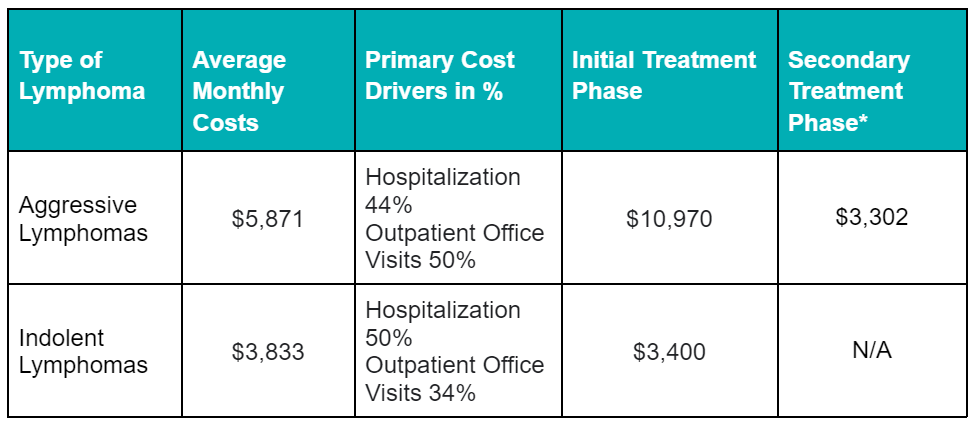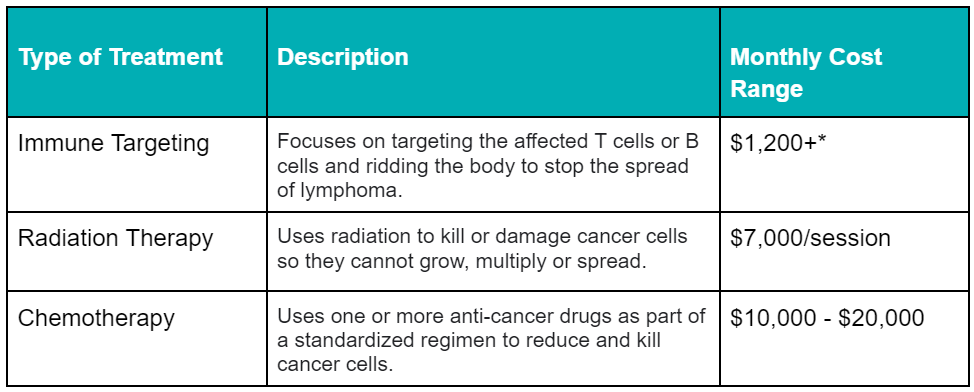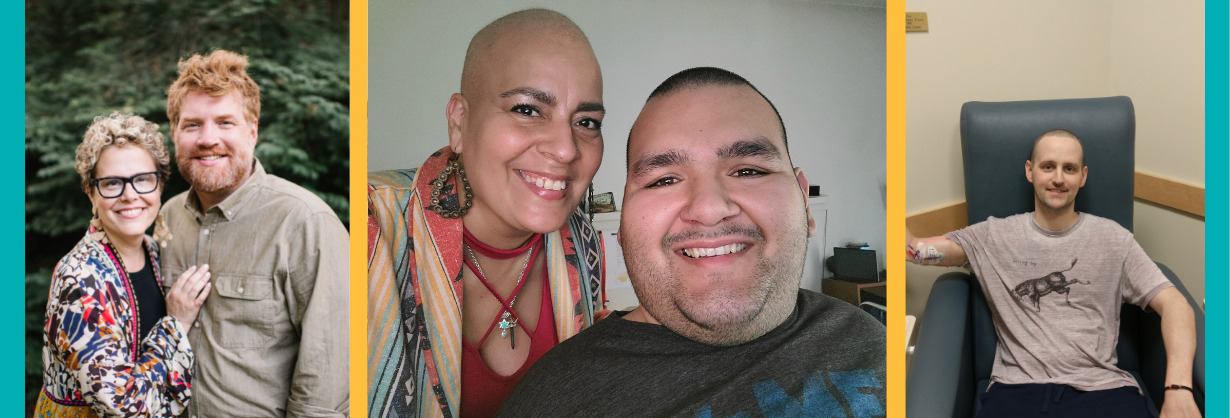
MobilityWorks
Accessibility for all: Helping people connect with who and what matters most
Searching...
No results found. Please try modifying your search.
Non-Hodgkin lymphoma treatment costs can be a burden. Find out how fundraising can help.
Are you looking for financial assistance for non-Hodgkin lymphoma? If you are, you’re not alone: cancer is often a physical, emotional, and financial burden for patients and their families. In this post, you’ll learn about non-Hodgkin lymphoma variations, estimated expenses associated with different diagnoses, Medicare and insurance coverage considerations, and how non-Hodgkin lymphoma fundraising with our nonprofit can help lift financial burdens.
Non-Hodgkin lymphoma (also known as non-Hodgkin’s lymphoma, NHL, or just lymphoma) is a blood cancer in white blood cells. Cancer starts in white blood cells called lymphocytes, which are a part of the body’s immune system.
The type of NHL will change the associated costs and treatment types that may be necessary. The type of lymphoma depends on which cells are affected (T cells or B cells), how fast or slow the cancer is spreading (aggressive vs. indolent), and how mature the cells are when they become cancerous.
T Cells vs. B Cells
B cell lymphomas are the most common, but lymphoma can also begin in T cells.
Types of NHL are grouped based on how fast they grow and spread:
There are other types of lymphomas, such as mantle cell lymphoma, that don’t fit neatly into either of these categories. They represent 6% of diagnosed lymphoma patients in the U.S. These do not fit neatly because, despite their fast-growing nature, they start in the “mantle zone” of a lymphatic nodule.
An NIH study on the medical costs associated with non-Hodgkin’s lymphoma in the U.S. during the first two years of treatment reflected the following:

*Aggressive lymphomas typically cost more due to the need for additional treatments and palliative care to reduce the affected blood cells, though these treatments and care pathways do not necessarily cure the disease.
One study published in 2018 on the economic burden of lymphoma patients with indolent (follicular) lymphoma and aggressive (DLBCL) lymphoma compared the cost of these two types of lymphoma. They concluded that the average per-patient, per-month cost during follow-ups was $1,500 more for those with aggressive DLBCL lymphoma.

The total cost of non-Hodgkin lymphoma treatment depends on the specific therapy methods a patient needs along with the type of lymphoma, the stage, and the patient’s condition. The most common lymphoma treatment cost types are chemotherapy, radiation therapy, and immune targeting therapy.

*The medication used to target the lymphoma, the injections, and the amount (mg) needed will make the cost vary significantly.
The cost of chemotherapy can be between $1,000 to $20,000 monthly. Medicare does not cover 100% of chemotherapy treatments, which leads many patients to consider fundraising to help with costs.
Depending on the type of lymphoma and cancer type, Medicare coverage for cancer treatments vary. Medicare may cover some chemotherapy treatments and services, but patients should never expect their lymphoma treatment costs to be fully covered by Medicare.
Consult directly with a Medicare expert or visit medicare.gov for more information.
Depending on your insurance provider and your plan’s coverage, these expenses will vary greatly. Consult your provider for more information on what your insurance will cover – but keep in mind the following expenses that may be partially or fully out-of-pocket under most insurance plans.
Here are a few of the most common expenses faced by an individual living with non-Hodgkin lymphoma—and keep in mind not all costs will be fully covered by most insurance plans.
Addressing a non-Hodgkin lymphoma diagnosis is filled with a long list of questions that differ with every patient. All these unknowns can add to the stress of living with Non-Hodgkin Lymphoma. Medical bills can be a leading source of stress and anticipation for patients.
If you need assistance with non-Hodgkin lymphoma expenses, our nonprofit is here to help.
You can work with Help Hope Live as your community-based fundraising source to access financial support for non-Hodgkin lymphoma treatments. Together, we can raise funds to assist with unmet medical expenses and related costs from living with Non-Hodgkin Lymphoma.
Expenses associated with non-Hodgkin lymphoma cancer procedures, rehabilitation and therapy, and long-term health care will vary depending on the situation. Regardless of the specifics, the expenses can add up quickly for patients and their families. Finding financial support for non-Hodgkin lymphoma treatments can be a burden – but Help Hope Live can help.
Help Hope Live is your community-based fundraising source to assist with the unmet medical expenses and related costs resulting from living with Non-Hodgkin Lymphoma.
Fundraising can help with the out-of-pocket cost of non-Hodgkin lymphoma. Through community-based fundraising, our nonprofit organization is dedicated to helping you raise funds for the medical expenses associated with surgery or ongoing support for Non-Hodgkin Lymphoma cancer.
The fundraising process with our nonprofit starts with a few simple steps:
Help Hope Live differs from GoFundMe by:
We are a nonprofit organization with more than four decades of trusted medical fundraising experience and a 4-star Charity Navigator rating.
Here are a few fundraising success stories from the Help Hope Live community:

In 2020, Carmel Longoria – a loving mother of three, wife, and friend – learned that her cancer was no longer in remission. Carmel was unable to work while pursuing treatment, including chemotherapy and frequent medical-related travel. That’s why she turned to Help Hope Live. Within seven months, her campaign raised over $12,800 to assist with critical medical and related expenses.
Elizabeth Lynne Burrus Barnett has been living with complex health issues since she was born. She turned to Help Hope Live to fundraise for overwhelming medical and related expenses, including six to nine months of medical relocation for treatment and hundreds of dollars per month in critical medications. She raised $14,000 in four months.
Mark Curry was diagnosed with leukemia after serving in the Marine Corps. Subsequent treatment left him with heart failure, requiring a life-saving heart and kidney transplant. Mark turned to Help Hope Live for assistance with co-pays, home modifications to accommodate his medical supplies, and medical travel. Fundraising helped bring a life-changing transplant within reach for Mark in 2019.
If you choose to fundraise with our nonprofit, here’s how the process will look:
1. APPLY for assistance
2. YOU’LL BE PAIRED with a Client Services Coordinator
3. YOUR COORDINATOR will provide you with one-on-one fundraising help, including personalized fundraising materials and guidance on how to rally your community, share your story on social media, reach out to the press, plan in-person or virtual fundraising events, and more.
Need Other Financial Help Options?
For alternatives to fundraising, you can find information on a variety of cancer financial assistance options. Please view our Catastrophic Illness Resource Directory for insight into sources of direct financial aid, support groups, and other resources for cancer patients and their families.